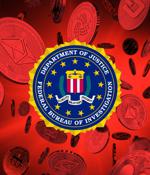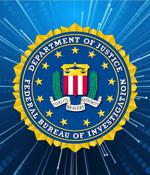Security News

The FBI has cut off a network of Kremlin-controlled computers used to spread the Snake malware which, according to the Feds, has been used by Russia's FSB to steal sensitive documents from NATO members for almost two decades. After identifying and stealing sensitive files on victims' devices, Turla exfiltrated them through a covert network of unwitting Snake-compromised computers in the US. In effect, Snake can infect Windows, Linux, and macOS systems, and use those network nodes to pass data stolen from victims along to the software nasty's Russian spymasters.

The development of the Snake malware started under the name "Uroburos" in late 2003, while the first versions of the implant were seemingly finalized by early 2004, with Russian state hackers deploying the malware in attacks immediately after. The malware is linked to a unit within Center 16 of the FSB, the notorious Russian Turla hacking group, and was disrupted following a coordinated effort named Operation MEDUSA. Among the computers ensnared in the Snake peer-to-peer botnet, the FBI also found devices belonging to NATO member governments.

The U.S. Justice Department announced today the seizure of 13 more domains linked to DDoS-for-hire platforms, also known as 'booter' or 'stressor' services. "As part of an ongoing initiative targeting computer attack 'booter' services, the Justice Department today announced the court-authorized seizure of 13 internet domains associated with these DDoS-for-hire services," the Department of Justice said.

"Unfortunately, one of our primary login domains was seized today. Therefore, we recommend using the domain singlelogin.re to log in to your account, as well as to register. Please share this domain with others," Z-Library said in a Telegram post. Z-Library's seized domains now display a banner indicating that the FBI seized them in accordance with a warrant issued pursuant to 18 U.S.C. 981(b) and 21 U.S.C. 853(f) by the United States District Court for the Eastern District of New York.

The FBI and Ukrainian police have seized nine cryptocurrency exchange websites that facilitated money laundering for scammers and cybercriminals, including ransomware actors. The seized sites allowed users to anonymously convert cryptocurrency into harder-to-trace coins to obscure the money trace and help cybercriminals launder their pilfers without being traced by law enforcement.

China has 50 hackers for every one of the FBI's cyber-centric agents, the Bureau's director told a congressional committee last week. "The scale of the Chinese cyber threat is unparalleled. They've got a bigger hacking program than every other major nation combined and have stolen more of our personal and corporate data than all other nations big or small combined."

If you plug your phone into a USB outlet that's provided by someone else, how can you be sure that it's only providing charging power, and not secretly trying to negotiate a data connection with your device at the same time? In the words of the FCC:. If your battery is running low, be aware that juicing up your electronic device at free USB port charging stations, such as those found in airports and hotel lobbies, might have unfortunate consequences.

Criminals posing as law enforcement agents of the Chinese government are shaking down Chinese nationals living the United States by accusing them of financial crimes and threatening to arrest or hurt them if they don't pay, according to the FBI. The miscreants involved in this financial fraud contact victims by spoofed phone or email messages, the bureau said in an advisory this week. Popular fake identities for the crooks include agents at the People's Republic of China Ministry of Public Security or US-based Chinese consulates.

Avoid using free charging stations in airports, hotels, or shopping centers. Bad actors have figured out ways to use public USB ports to introduce malware and monitoring software onto devices that access these ports.

For-profit companies reportedly linked to sextortion activity are targeting victims using various deceptive tactics to pressure them into paying for "Assistance" services provided by non-profit agencies and law enforcement for free, the FBI warns. Sextortion is a digital extortion scheme where criminals use phishing emails or fake social media profiles to deceive potential victims into sharing explicit videos or images later used for blackmail.